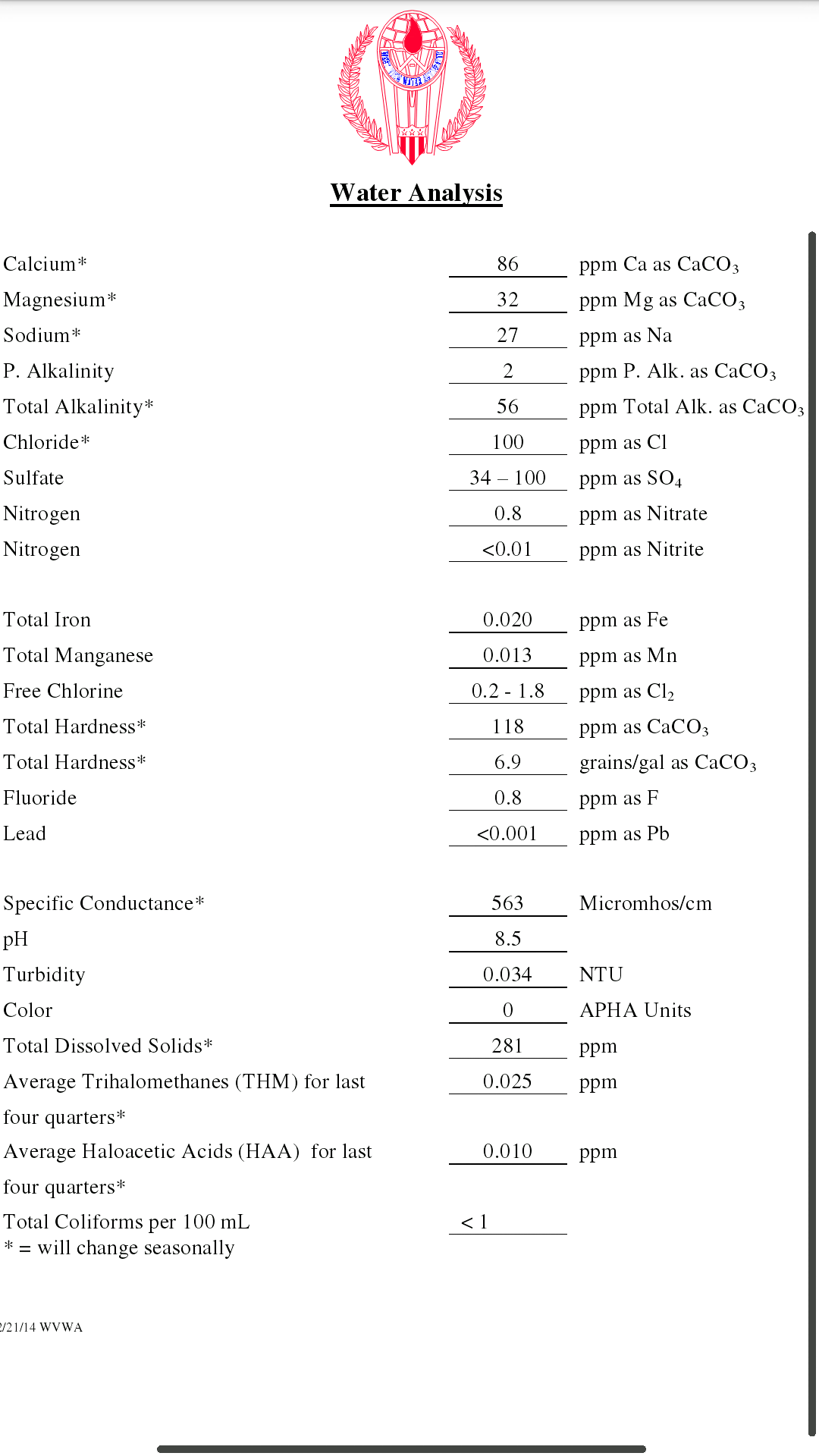nhindian
Well-Known Member
- Joined
- Aug 12, 2013
- Messages
- 146
- Reaction score
- 5
Hi all, I am planning my first all-grain brew day tomorrow after a few months of extract. I bought "Water" from the Brewing Elements Series, but due to a move, wedding planning, and job responsibilities I haven't had as much time as I wanted to really dig into it.
I have used bottled water in the past when extract brewing, but am hoping my tap water can suffice. I already picked up some campden tablets to treat For chlorine and chloramine.
Here's a copy of my water report

Any help in building up my water is greatly appreciated. I will be making an IPA as well.
Thanks!
I have used bottled water in the past when extract brewing, but am hoping my tap water can suffice. I already picked up some campden tablets to treat For chlorine and chloramine.
Here's a copy of my water report

Any help in building up my water is greatly appreciated. I will be making an IPA as well.
Thanks!


